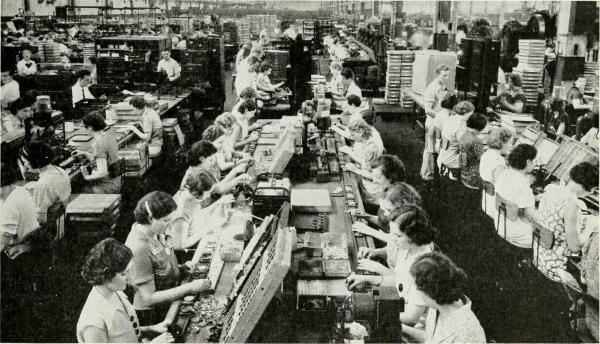The job dissatisfaction is a negative response from the employee towards their work, since it is conditioned by the employee's own attitude and by the organization of certain factors of the company.
For many, work is a contribution that gives meaning to their lives that helps them feel useful in their work by being recognized and for others, it is a continuous dissatisfaction where they see impossible the possibility of growing as professionals.
Advertisements
The response to job dissatisfaction, It will depend on the working conditions and the personality that each employee has, it also makes reference to the state of anxiety, restlessness or depression due to different work disappointments.

Advertisements
In this article you will find:
How do employees express their job dissatisfaction?
Among the problems that companies currently face, is this phenomenon capable of affecting many employees, who due to lack of space adequate to achieve professional development, they fall into certain negative behaviors such as those mentioned below, which demonstrate their discontent:
Lack of motivation to go to work
When an employee constantly reports ill, he shows that he is no longer interested in his work.
Advertisements
No interest is shown to cooperate or do favors
The show of disinterest in projects that are developed in the company, it is a way of showing that you do not want to continue working, you are always late, you leave early and you do nothing to change his attitude.
Devaluation at the professional level
The employee disinterested in work, he continually disrespects his superiors and colleagues and does not care how he treats the company's customers.
Advertisements
Production decline
When the worker is unhappy with his conditions, lowers the quality of their work, showing that he doesn't mind being fired.
Rest days are constantly requested
When the employee reaches this point, it is a sign that they may be looking for work elsewhere or doing something different.
Advertisements
Causes of job dissatisfaction
There are a variety of negative factors, which can cause deep dissatisfaction in employees and the desire to leave work, among these causes can be mentioned the following:
Little salary
For an employee to feel good about his job, it is necessary that he be rewarded with a fair salary.
Unfavorable relationship with colleagues and superiors
Bad relationships are often generated in the workplace due to envy, overcompetition or professional jealousy among colleagues themselves. In the case of bosses, it is mostly due to their arrogant attitude and inconsiderate demands towards their employees.
Lack of promotion
A person with career aspirations who stays stuck in his job for a long time and sees who has no possibility of promotion, will fall into apathy and lack of control in the development of his responsibilities.
Difficulty adapting to the workplace
There are many people who are very impatient and have the need to constantly change jobs, since they easily tire of the work they do because they do not achieve what they really want professionally.
Unsafe employees
Sometimes employees do not have confidence in themselves and doubt their good abilities and aptitudes to efficiently carry out a certain position. They may even think that they are unable to carry out their activities correctly and to be able to adapt to their work environment, since they always have deep fear and insecurity.
Consequences of job dissatisfaction
This type of dissatisfaction significantly affects the work performance of employees and in turn productivity of the company, therefore, it must strive so that all its workers feel satisfied professionally. This results in the following behaviors:
- Employees are frequently absent from the workplace.
- Most of the time they leave the company where they work.
- It leads to inappropriate behaviors.
- They delay the development of production.
- They produce work accidents.
- Indirectly cause costs, related to training, recruitment and apprenticeships for the proper functioning of the company.
Preventive measures for job dissatisfaction
Some preventive measures to avoid job dissatisfaction They are:
- Clear determination of the activities that each worker must carry out, without creating confusion and ambiguity.
- Avoid excessive working hours.
- Reduce monotony and repetitive work through automation.
- Promote fluidity and respect among employees and superiors.
- Adopt technological changes and in turn induce them in order to improve working conditions.
- Design a work system that meets the expectations and needs of employees such as functional rest areas and social teams.
- Promote work in teams that understand the same qualities.
- A good treatment that is understanding and affectionate on the part of superiors is a favorable indication that significantly reduces stress.


